This article was co-authored by Asa Don Brown, PhD, DNCCM, FAAETS and by wikiHow staff writer, Nihal Shetty. Dr. Asa Don Brown is a Clinical Psychologist with over 25 years of experience. He specializes in working with families, children, and couples, treating a variety of psychological disorders, trauma, and abuse. Dr. Brown has specialized in negotiation and profiling. He is also a prolific author having published three books and numerous articles in magazines, journals, and popular publications. Dr. Brown earned a BS in Theology and Religion with a minor in Marketing and an MS in Counseling with a specialization in Marriage and Family from The University of Great Falls. Furthermore, he received a PhD in Psychology with a specialization in Clinical Psychology from Capella University. He is also a candidate for a Masters of Liberal Arts through Harvard University. Dr. Brown is a Fellow of the American Academy of Experts in Traumatic Stress and a Diplomate for the National Center for Crisis Management and continues to serve a number of psychological and scientific boards.
There are 8 references cited in this article, which can be found at the bottom of the page.
This article has been viewed 7,103 times.
Have you been diagnosed with chlamydia, and are now struggling to find the right words to tell your boyfriend? Take a deep breath, and know that things are going to be okay. STIs, including chlamydia, are a normal part of a sexually active life—they don’t mean you’re a bad person. If you’re looking for a step-by-step walkthrough of how to handle this conversation, we’ve got you covered. Here’s our complete guide on how to tell your boyfriend you have chlamydia.
Steps
Get tested to be sure you have chlamydia.
-
Without a proper diagnosis, you may not have chlamydia at all. Many symptoms of chlamydia, including pelvic discomfort and painful urination, are also shared by infections like UTIs. Avoid diagnosing yourself with chlamydia, and if you haven’t already visited a doctor or a sexual health clinic, do so as soon as possible.[1] X Trustworthy Source PubMed Central Journal archive from the U.S. National Institutes of Health Go to source
- To test for chlamydia, your doctor may ask for a urine sample or take samples of any discharge from your genital area.
Consult reputable sources of information to get the facts.
-
Go into this conversation with your boyfriend well-informed. There is a lot of misinformation about STIs, and talking to your doctor can help you put your diagnosis into perspective. Some important pieces of information to be aware of include:[2] X Trustworthy Source National Health Service (UK) Public healthcare system of the UK Go to source #*Chlamydia is a bacterial infection spread through sexual contact. It is among the most common STIs.
- Although you can treat chlamydia easily with a course of antibiotics, if left untreated, it can have long-term health effects.
- A diagnosis of chlamydia does not mean anyone cheated during your relationship. Most people with chlamydia do not experience any symptoms, and therefore could have been carrying it for a long time.
Stay calm.
-
Keeping a level head helps you approach this situation practically. STIs are a normal part of being sexually active, so don’t blame yourself. Although it’s normal to feel anxious about a chlamydia diagnosis, neither your health nor your relationship are necessarily at serious risk. An STI diagnosis is not the end of the world—it’s just a call to action.
- If you feel like you’re panicking after a chlamydia diagnosis, try deep breathing, doing a progressive muscle relaxation exercise, or just having a conversation with a trusted friend.
Meet up with your boyfriend as soon as possible.
-
For the sake of your boyfriend’s health, talk to him as soon as possible. At the very least, make sure that you talk about your chlamydia diagnosis before having sex again. If you’re worried that your boyfriend might become aggressive when he hears this news, be sure to meet him in a public place, like a cafe. Schedule a meeting by saying or texting something like:[3] X Trustworthy Source American College of Obstetricians and Gynecologists Professional association of OB/GYNs focused on education and public outreat initiatives Go to source
- “I have something I need to talk to you about—I don’t want you to worry about it too much, but I’d like to have a conversation with you in person. Could I see you tonight?”
- “I care about you a lot, and there’s something I need to discuss with you. Could we meet tomorrow?”
- “I have some news I need to share with you, but I’d rather do it in person. Can we get coffee sometime tomorrow afternoon?”
Bring up your diagnosis in a blame-free way.
-
This conversation will go better if it avoids guilt-inducing language. You or your boyfriend may be feeling really uncomfortable with this news, but it’s important to remember that neither of you is necessarily responsible for this diagnosis. When you and your boyfriend are in a calm location without any pressing matters to attend to, bring up your diagnosis by saying something like:[4] X Research source
- “I tested positive for chlamydia the other day. I’m not sure when I became infected, but I’m telling you because I care about you and your health.”
- “Yesterday, I went to the clinic for a check-up and found out I have chlamydia. I’m telling you this because I’d really like you to get tested as well.”
- “I found out I have chlamydia over the weekend. I know this might be a stressful thing for you to hear, but I know we can work through these emotions as a couple.”
Anticipate your boyfriend’s reaction.
-
Having a script in mind can make this conversation a lot easier. Think through how your boyfriend is likely to react and what he’ll say to you, and practice some responses ahead of time. If you can have a friend help you role-play this conversation, this can make you even less anxious. For example:[5] X Research source
- If he says, “Did you cheat on me?” say something like, “Having chlamydia doesn’t mean either of us cheated. One of us could have had chlamydia for years and not known.”
- If he says, “What do I do now?” say something like, “It’s really important that you get tested yourself—I can help you set up an appointment if you want. Also, make sure you tell any partners you had in the past 6 months.”
- If he says, “That’s so gross,” say something like, “No it isn’t. It’s just part of being sexually active.”
Open the conversation up to questions.
-
Your boyfriend may have questions about chlamydia that you can answer. While there’s no need to pretend to be an expert on this STI, you can help your boyfriend feel better by giving him accurate information. Ask him an open-ended question like, “How do you feel?” and try your best to respond in an empathetic and honest way. For example:[6] X Research source
- If he asks, “Is it treatable?” say, “Yes—chlamydia is relatively easy to treat, and if you do have it, you’ll need to take a short course of antibiotics.”
- If he asks, “Would you be mad at me if I gave it to you?” say, “I don’t know if we’ll be able to ever know who gave it to who. Let’s try not to blame each other.”
- If he asks, “How can I get help?” say, “I really liked my experience at this clinic last week. I can call to make an appointment for you, and can came with you if you’re nervous.”
- If he asks you a question that you don’t know the answer to, say something like, “I’m not sure, but I can get in touch with my doctor and ask.”
Give your boyfriend space to process.
-
Your boyfriend may need some time to himself. People process stressful information in different ways—if your boyfriend needs some space to process this news, give it to him. Many clinics offer fact sheets on chlamydia—try leaving one with him so that he can go over the information by himself.[7] X Research source
- You can also offer your boyfriend space by saying something like, “I’d be really excited to spend more time with you, but I’d also understand if you want some space to think through this by yourself.”
- Needing some space is not a sign that your relationship is over. Don’t panic if your boyfriend wants to be left alone for a little bit.
Take some time to decompress.
-
Congratulate yourself on having done something difficult. Although this conversation is difficult, it’s also necessary. Spend some time after this conversation doing something you enjoy—it’s a great idea to schedule a hangout with a friend for after this conversation, so that you have the opportunity to take your mind off of things.
- Decompressing includes taking care of your own health. Aside from caring for your mental health, be sure to take all of the medication that your doctor prescribed you.[8] X Research source
Ask your doctor for help talking to your boyfriend.
-
Your doctor may be willing to have this conversation for you. Although not all doctors will agree to talk to your boyfriend and let him know that he may be at risk for chlamydia, some might. If that’s the case, and if you really feel that you aren’t capable of handling this conversation on your own, don’t be afraid of asking for help.
- You might tell your doctor something like, “I know that you’re really busy, but I was hoping you might be able to do me a favor. Could you talk to my boyfriend about my chlamydia diagnosis? I don’t want him to hear misinformation.”
Use an anonymous notification program.
-
A notification service lets you avoid having this conversation. Although most people prefer to have conversations about STIs in person, rather than over text or phone call, this kind of notification is far better than no notification at all.[9] X Trustworthy Source PubMed Central Journal archive from the U.S. National Institutes of Health Go to source If you want to remain anonymous while giving your boyfriend a text that he has been exposed to chlamydia, try using a service like Tell Your Partner, which will deliver him a message giving him the news without outing you.
- These services can be a good way of reaching out to ex-partners and hookups as well. With chlamydia, it’s important to notify everyone you’ve had sex with in the past 6 months.[10] X Research source
You Might Also Like
-Step-17.webp) 11 Chlamydia Symptoms, Treatment, and More for Men
11 Chlamydia Symptoms, Treatment, and More for Men
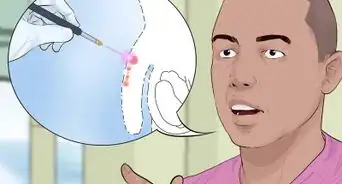
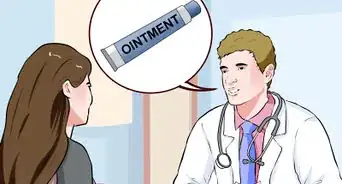
-Step-11-Version-2.webp)
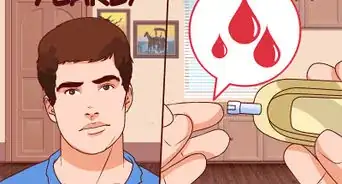
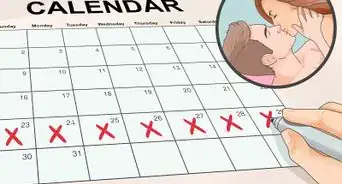
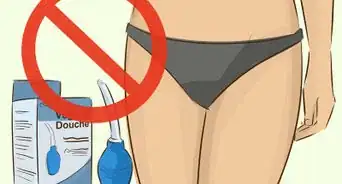
-Step-10.webp)
-Step-13.webp)
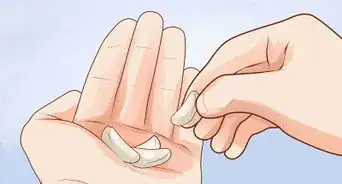
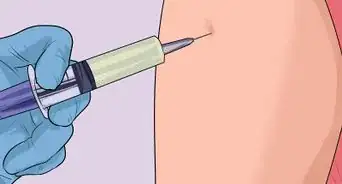
-Step-9.webp)
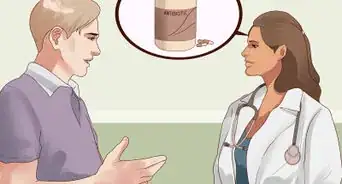
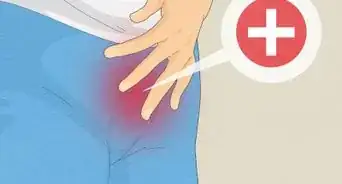 How to Know if You Have Epididymitis (with Pictures)
How to Know if You Have Epididymitis (with Pictures)
References
- ↑ https://www.ncbi.nlm.nih.gov/pmc/articles/PMC6449866/
- ↑ https://www.nhs.uk/conditions/chlamydia/
- ↑ https://www.acog.org/womens-health/faqs/chlamydia-gonorrhea-and-syphilis
- ↑ https://stoptherise.initiatives.qld.gov.au/testing-and-treatment#paragraph-86-3
- ↑ https://playsafe.health.nsw.gov.au/sti-treatment/chlamydia-treatment-partner/
- ↑ https://playsafe.health.nsw.gov.au/sti-treatment/chlamydia-treatment-partner/
- ↑ https://stoptherise.initiatives.qld.gov.au/testing-and-treatment#paragraph-86-3
- ↑ https://www.health.state.mn.us/diseases/stds/basics/importantinfo.html
- ↑ https://pubmed.ncbi.nlm.nih.gov/34886724/
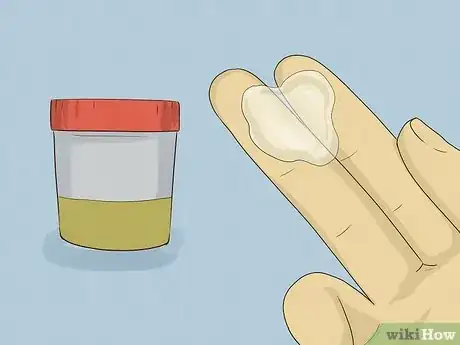
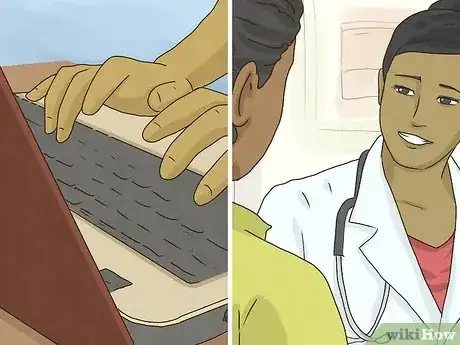

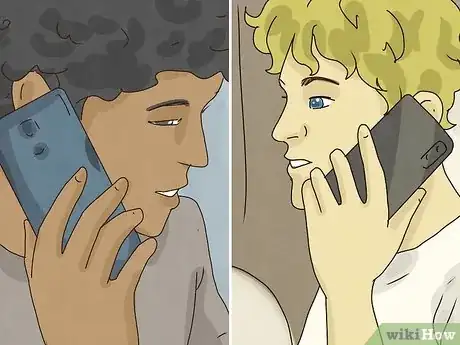




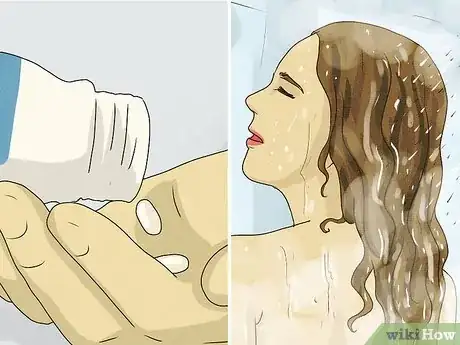
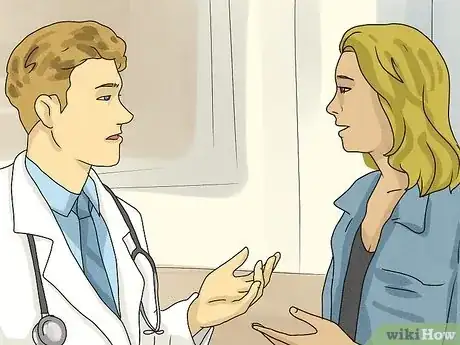
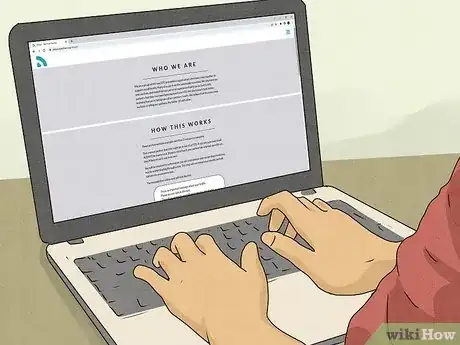







-Step-17.webp)
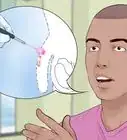
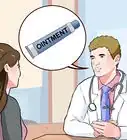
-Step-11-Version-2.webp)



































Medical Disclaimer
The content of this article is not intended to be a substitute for professional medical advice, examination, diagnosis, or treatment. You should always contact your doctor or other qualified healthcare professional before starting, changing, or stopping any kind of health treatment.
Read More...